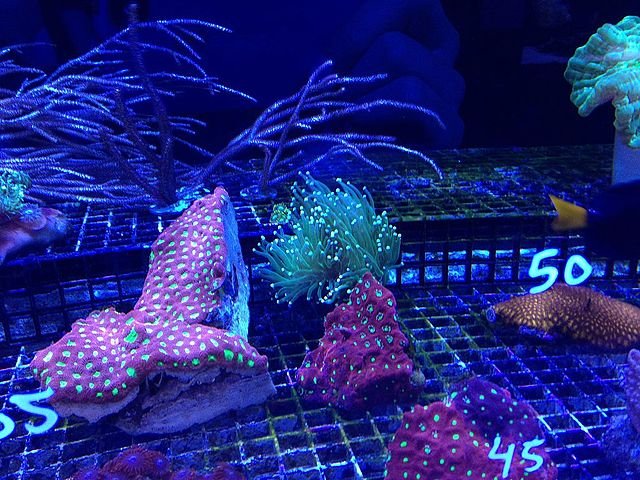by Abertay University
Seaweed, mussels, algae and corals found on the legs of decommissioned oil and gas platforms could be turned into new animal and fish feeds.
A research project from Abertay University is looking at ways to recycle and reuse the marine growth from platforms that come to shore to be stripped down at the end of their life cycle.
Working with decommissioning company, CessCon Decom, researchers are conducting an initial feasibility study, supported by the Industrial Biotechnology Innovation Centre (IBioIC).
Different types of marine growth can be found at different depths, depending on environmental conditions in the water, with forecasts from Offshore Energies UK estimating that up to 40,000 tonnes could be recycled from oil rigs over the next decade.
One of the aims of the project is to gain a better understanding of the matter that is typically found, including the composition of fatty acids and proteins.
The study follows a 2018 collaboration between Abertay University and Scottish fishing net manufacturer W&J Knox Ltd, which saw waste material collected on nets turned into livestock feed.
Boon-Seang Chu, an academic in Abertay University’s Division of Engineering and Food Science, said: “Our previous research has shown that the proteins and fatty acids, such as Omega-3, contained in aquaculture waste can become valuable feed ingredients for agriculture and aquaculture. This study is about understanding the nutritional composition of the marine growth retrieved from decommissioned rigs, whether onshore or offshore, and the feasibility of recovering proteins and fatty acids from the waste materials. The results of this work will help advise follow-on steps of the project.”
Karen Seath, environment and regulatory affairs director at CessCon, said: “As the North Sea oil and gas sector matures, the decommissioning sector has an incredibly important role to play in making sure that the parts of those installations which are no longer in use and are required to be brought to shore are disposed of safely and responsibly. Our process is built around circular economy principles and we have set an ambitious target to reach the point where 100% of the decommissioned materials brought onshore are reused, reconditioned, refurbished or recycled.”
Liz Fletcher, director of business engagement at IBioIC, added: “The collaboration between CessCon and Abertay University is a great example of an initiative that could see the waste from one industry turned into a valuable resource for another. Marine biomass is one of many inputs that can be used by the biotechnology sector to produce a range of products and materials that will ultimately help Scotland to reach its net zero goals.”
Stay Always Informed
Join our communities to instantly receive the most important news, reports, and analysis from the aquaculture industry.
Editor at the digital magazine AquaHoy. He holds a degree in Aquaculture Biology from the National University of Santa (UNS) and a Master’s degree in Science and Innovation Management from the Polytechnic University of Valencia, with postgraduate diplomas in Business Innovation and Innovation Management. He possesses extensive experience in the aquaculture and fisheries sector, having led the Fisheries Innovation Unit of the National Program for Innovation in Fisheries and Aquaculture (PNIPA). He has served as a senior consultant in technology watch, an innovation project formulator and advisor, and a lecturer at UNS. He is a member of the Peruvian College of Biologists and was recognized by the World Aquaculture Society (WAS) in 2016 for his contribution to aquaculture.







